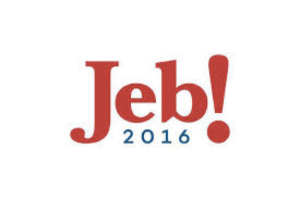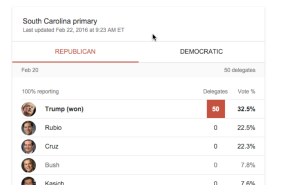

Trump’s Success Is Built On an Incredibly Effective, Emotionally-Based Position
(Originally Published on Linkedin March 1, 2016)
Our policy is to stay away from discussing religion and politics in business – unless the topics can illustrate powerful marketing principles. In the case of the battle for the Republican nomination, many are baffled by Donald Trump’s success thus far. Speaking strictly from a marketing strategy standpoint, we are not.
We believe that campaign slogans articulate a candidate’s desired position in the minds of voters. Trump’s position, and the consistent messages that spring from it, tap into a key emotion considerably more effectively than his rivals. That emotion is anger.
“Make America Great Again” leverages the ire of Americans who believe that the country has relinquished its greatness due to weak policies in the areas of immigration, social programs, foreign policy and more. To these people, it feels good to imagine a President who will be strong enough to re-claim what they feel has been taken away from them via compromise and political-correctness. Each “outrageous” claim made by Trump signals to his constituents that he is unafraid to say and do whatever it takes to fulfill his campaign promise.
It’s been effective. Is there anything that can be done to stop Trump’s momentum towards the nomination?
Should a Politician Attempt to Re-Position in the Middle of a Race?

The very-slight glimmer of hope for everyone else still in the Republican race is that their combined vote totals in primaries like New Hampshire and South Carolina exceeded those of Trump. It’s a testament to Trump’s momentum that this was also true in Nevada, but less dramatically so. We’ve written previously about Ted Cruz’ use of segmentation in his ground game (see it here) and it may be the most significant reason for his results thus far.
Today we look at the recently-suspended campaign of Jeb Bush. Contrasting his slogan with Trump’s goes a long way in explaining Jeb’s catastrophic results vs. Trump.
According to his campaign, the slogan “Jeb!” was meant to build on the fact that “Bush” was the best known surname in the race. Many think it was really an attempt to take attention away from the fact that Jeb would be the third Bush to occupy the Oval Office since 1988. But what did “Jeb!” convey to voters?
As we wrote in The Accidental Marketer, effective positioning proactively chooses the image or perception the candidate wants to create in the minds of constituents. Weak positioning leaves this image or perception in the hands of competitors. Bush’s results seem to suggest that he left it to Trump to position him, and it didn’t work out well.
Could Bush have re-positioned himself mid-race? Why not? Businesses and brands do it all of the time. At the end, it appeared that Jeb was indeed changing strategies, effectively trotting out his mother and brother on the campaign trail where he appeared to be distancing himself from all things Bush previously. What new position would have been the most effective?
The Anti-Bully Positioning

Our Rapid EVolution (REV) process has been effective in helping clients turn around their “problem-child” underperforming products. Prior to Jeb’s exit from the race, we were looking at a few of our REV re-positioning strategies to see if they could apply to Bush’s underperforming campaign against problem-child Trump.
One approach we would have suggested was to highlight Jeb’s track record compared to Trump’s lack of political experience and apparent “shoot-from-the-hip” decision-making. Jeb Bush left the governor’s office in bi-partisan Florida with a 64% approval rating after economic successes and dealing effectively with nine hurricanes. A slogan like “Experience Under Pressure” would have highlighted these accomplishments while not-so-subtly implying that no one knows how Trump would behave in the crucible of the White House.
Another potential Bush re-position could have come from the fact that Trump can appear bully-like in his extreme statements about Muslims, women, immigrants, etc. Anti-bullying slogans like “Take a Stand” could have been leveraged and re-purposed to highlight Jeb’s specific policy platforms while painting Trump as vague on important details and the worst kind of fighter – one who preys on the disadvantaged. (The Rubio campaign is pursuing some of these strategies right now despite their candidate’s significant experience deficit compared to Bush.)
Would re-positioning have worked for Jeb? To be fair, the Bush campaign appeared to dabble in some verbal tactics reflecting these strategies. But how about a full-blown re-positioning strategy, with on-message platforms and talking points organized around one of these themes? All punctuated with a new slogan that would signal the change in focus?
The Republican “establishment” –eager for a Trump alternative – would certainly have welcomed a Bush campaign re-set. It was no secret that the “Jeb!” approach was underperforming. Any short-term embarrassment from starting over again would have been short-lived. In our opinion, a newly-energized candidate with a platform to highlight strengths that matter to many in the electorate could have turned things around.

 Tom Spitale
Tom Spitale